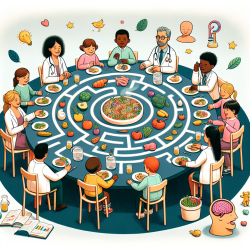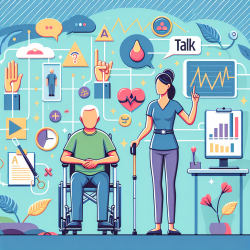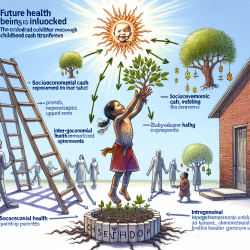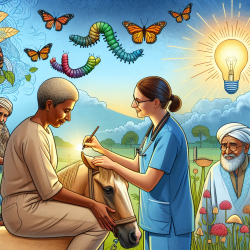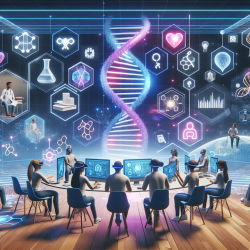Unlocking the Potential of Protocells: Ethical and Social Considerations for Practitioners
As practitioners in the field of speech-language pathology, we are always looking for innovative ways to enhance our practice and improve outcomes for children. One area of emerging interest is the field of synthetic biology, particularly the development of protocells. Protocells, which are created from non-living components, represent a new frontier in synthetic biology. They have the potential to revolutionize various fields, including medicine and technology. However, their development also raises important ethical, social, and regulatory considerations that practitioners should be aware of.
Understanding Protocells
Protocells are self-assembling and self-reproducing chemical systems created through human artifice. Unlike traditional "top-down" synthetic biology, which involves re-engineering existing life forms, protocells are built from the "bottom-up" using non-living materials. This distinction is crucial as it affects the ethical and social profiles of these technologies.
Key Ethical and Social Checkpoints
The research article "Social and Ethical Checkpoints for Bottom-Up Synthetic Biology, or Protocells" identifies six key checkpoints in protocell development that require careful ethical, social, and regulatory consideration:
- Checkpoint A: Systematic research in protocell synthesis should trigger ethical and social discussions.
- Checkpoint B: Technical feasibility of protocells signals overcoming scientific hurdles.
- Checkpoint C: Creation of fully autonomous protocells in the lab.
- Checkpoint D: Protocells that can survive outside the lab raise environmental and health concerns.
- Checkpoint E: Releasing protocells outside the lab has significant social implications.
- Checkpoint F: Toxic or infectious protocells necessitate stringent safety regulations.
Recommendations for Practitioners
Practitioners can play a vital role in shaping the responsible development of protocells by considering the following recommendations:
- Engage in public discussions about the ethical and social implications of protocells.
- Stay informed about the latest scientific milestones and communicate these to the public.
- Support funding for research into the social, ethical, and legal implications of protocells.
- Incorporate education on protocells' benefits, risks, and best practices into professional development.
Encouraging Further Research
While protocells hold great promise, their development must be approached with caution and responsibility. Practitioners are encouraged to delve deeper into the ethical and social dimensions of protocells by reviewing the original research paper. This will not only enhance their understanding but also empower them to contribute meaningfully to the discourse on synthetic biology.
To read the original research paper, please follow this link: Social and ethical checkpoints for bottom-up synthetic biology, or protocells.





